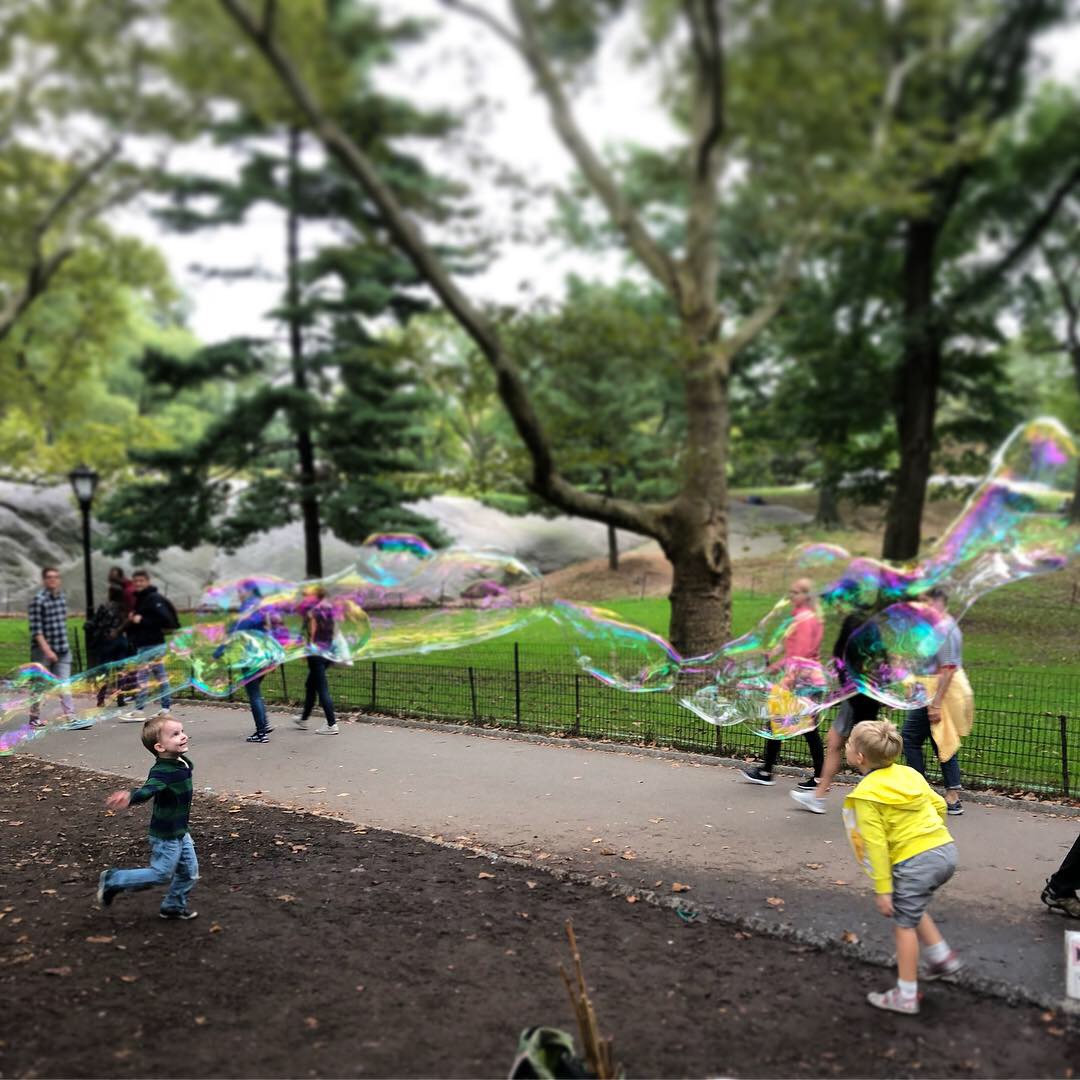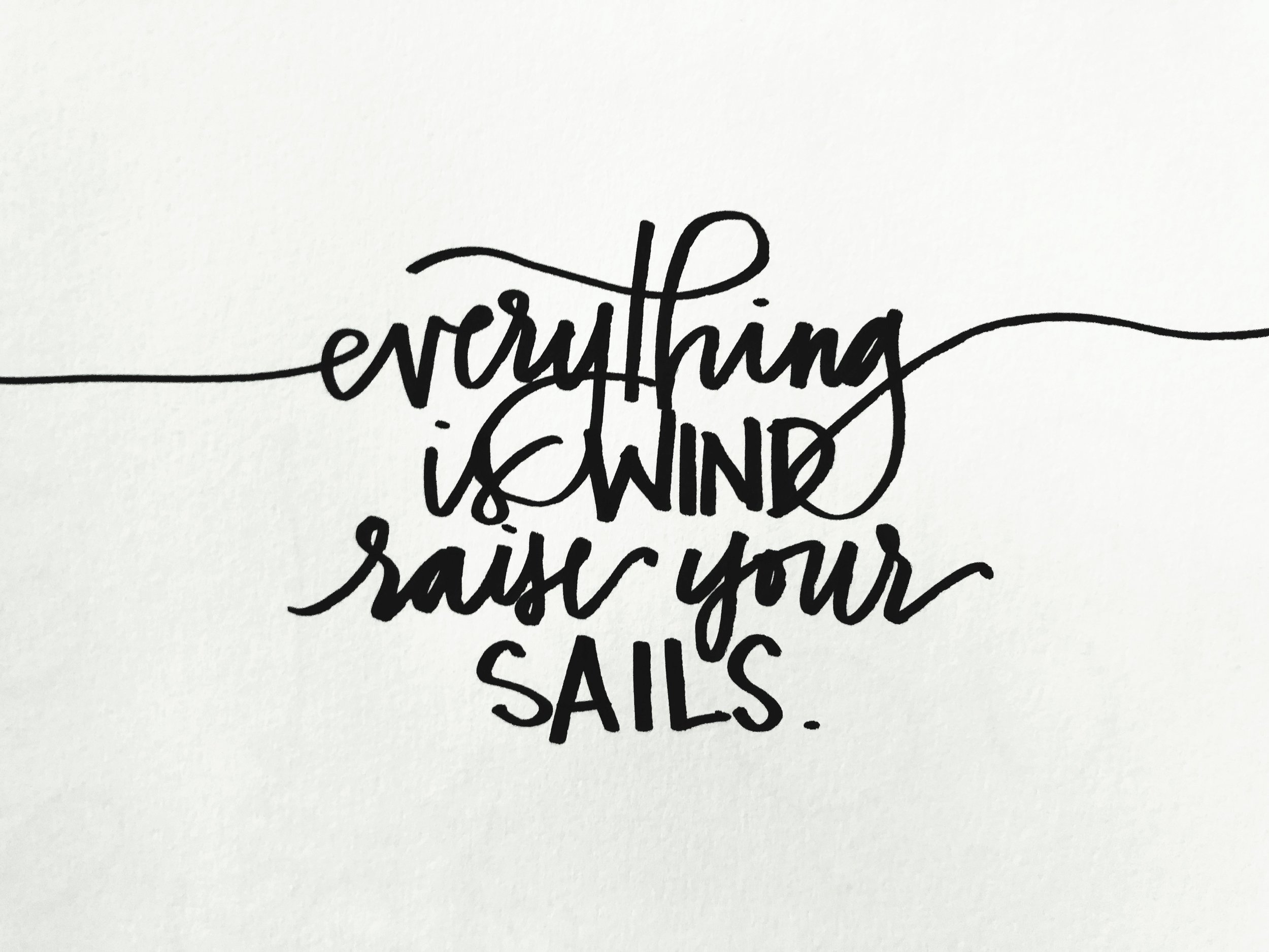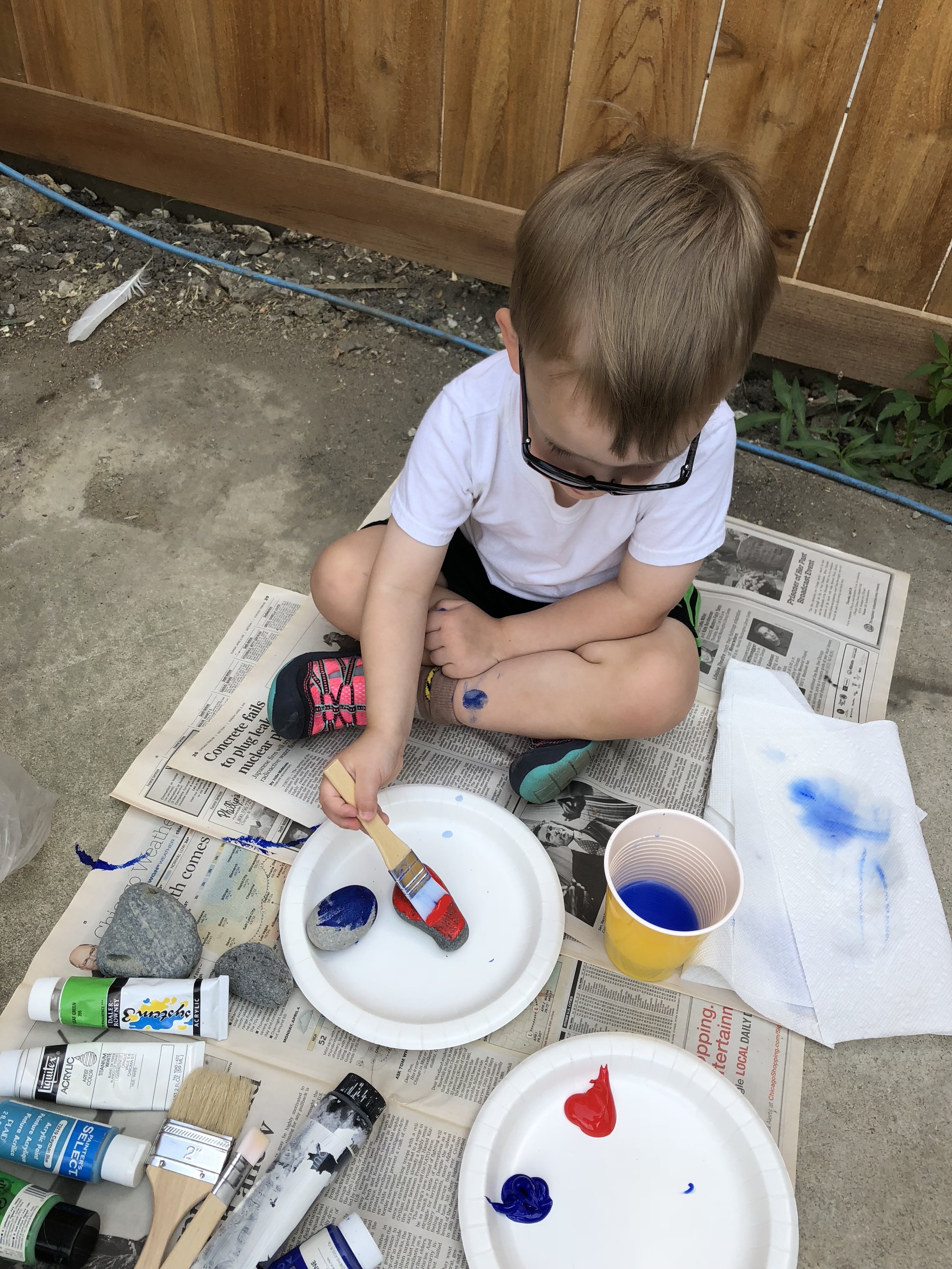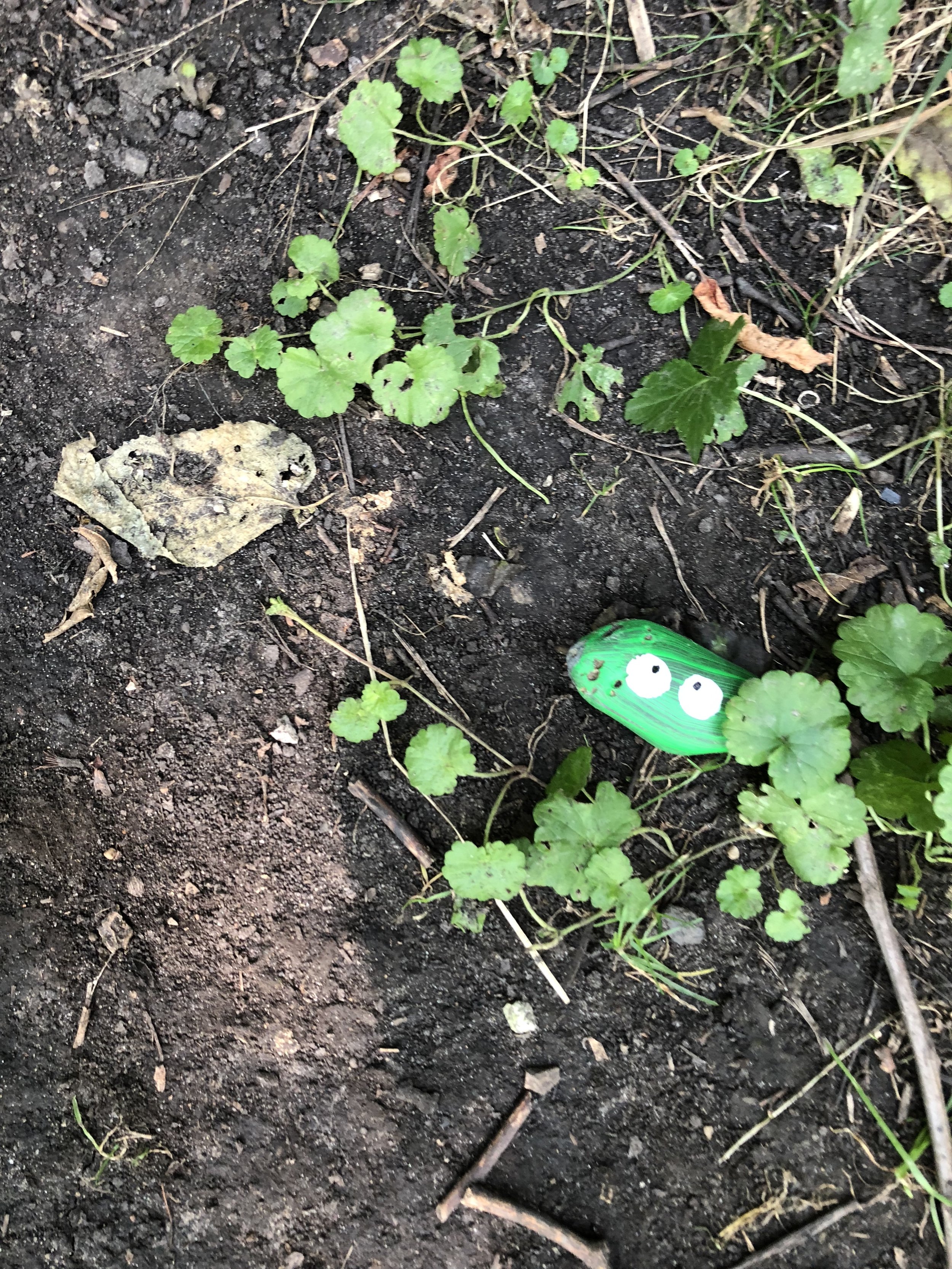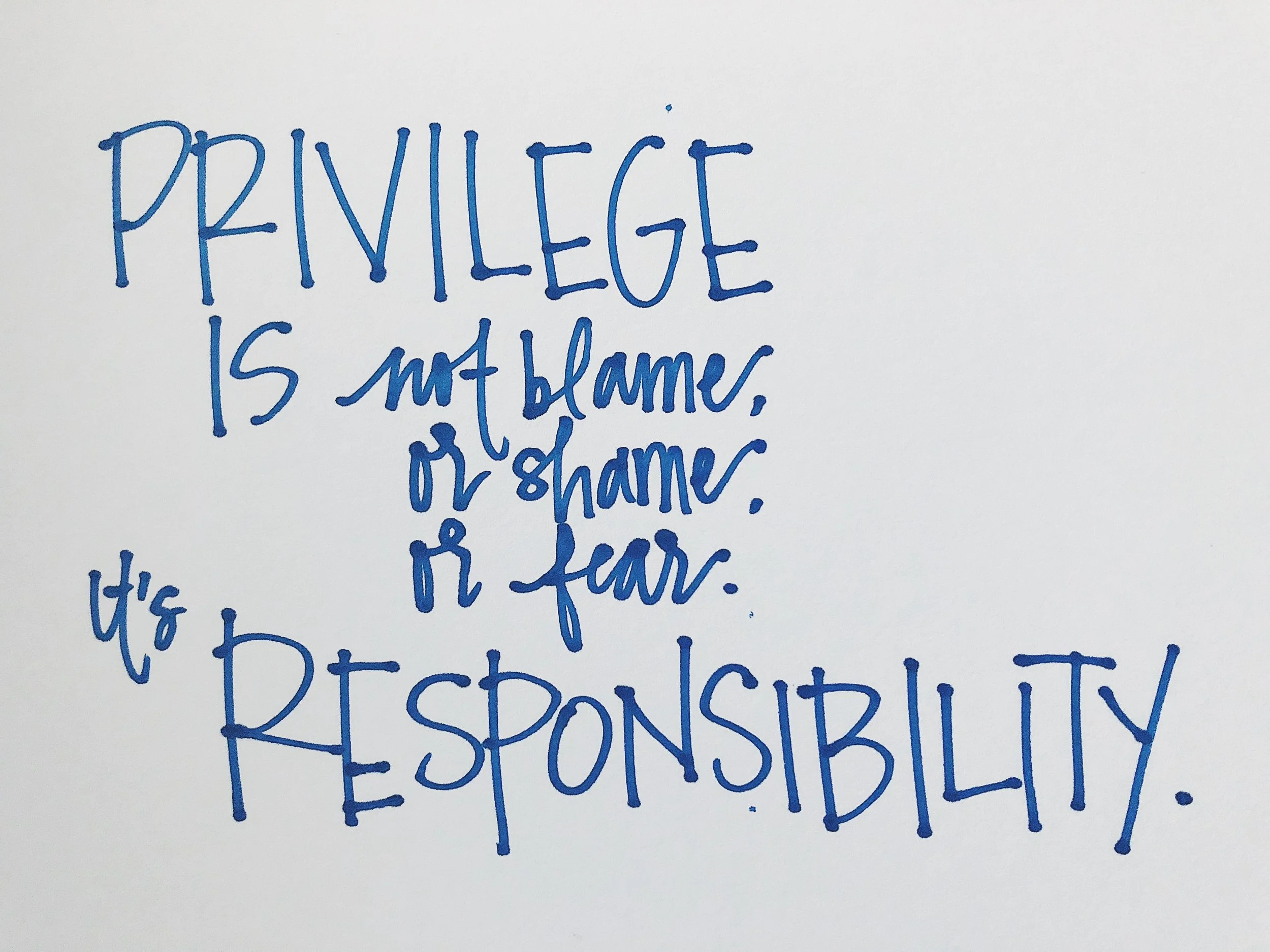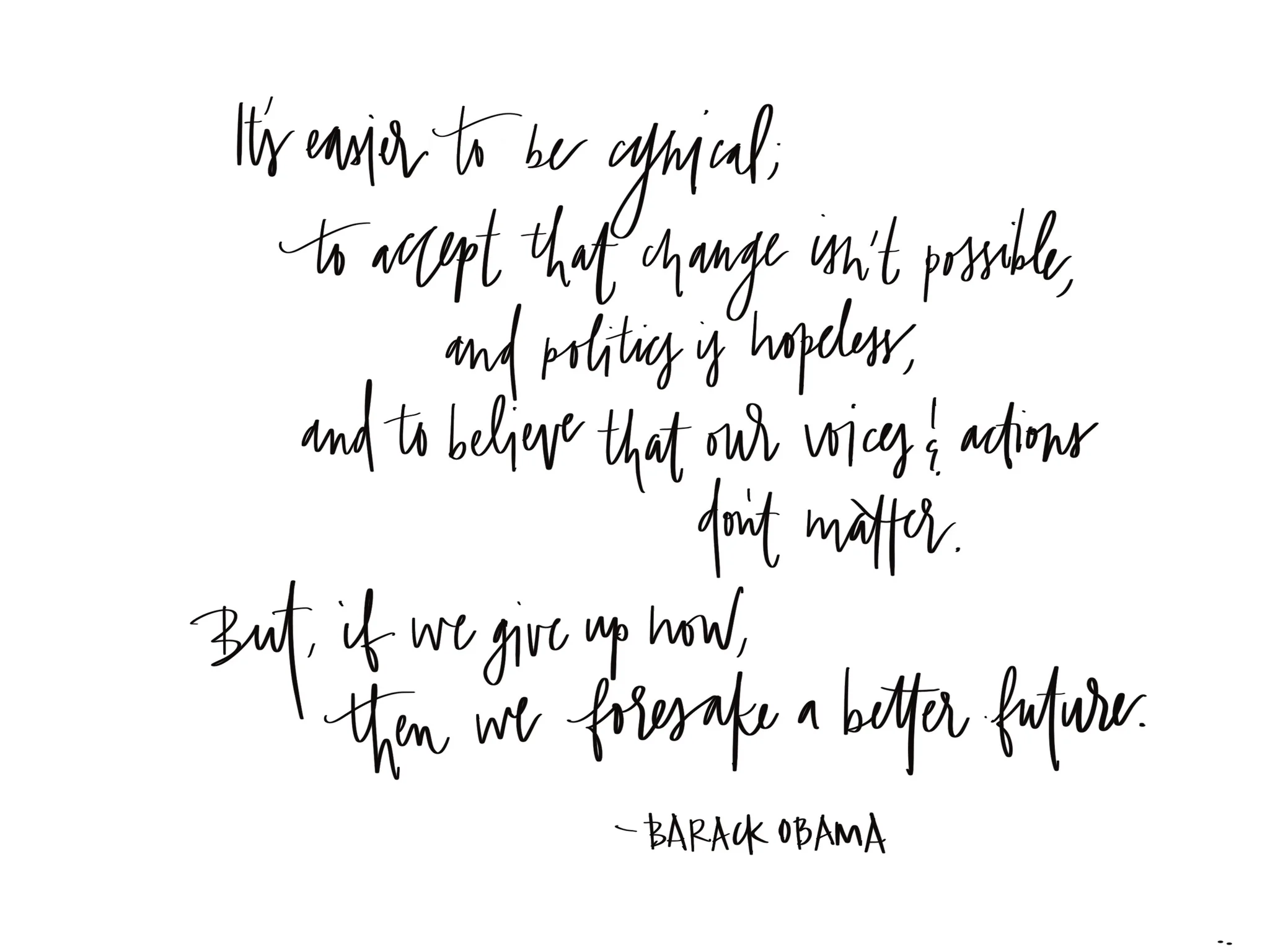I know some people want their kids to be smart or athletic or beautiful. But really the top of the list for me is kind. I want my children to recognize other people's humanity and to respect and uplift that. Above all else, be kind.
Trust
Wisdom from Cleo Wade.
Find magic.
This past weekend, the entire family spent three days together in New York City. The little dudes are pretty used to urban life, but New York City holds wonder for everyone, even long-time residents. It was great when we took a moment, slowed down, and tried to see the city through their eyes. They found wonder and magic.
That doesn’t mean it was a hassle-free trip…it was as exhausting as any trip with children can be. But it means if you don’t believe something can be good, it won’t be.
Sharpens pencils.
Patricia Lockwood writes in Priestdaddy:
"I have lived for the last eight years in seasonless places, where things do not die, but revolve in a constant tropic sun. I had forgotten how the fall sharpens pencils, gray and colored ones. I had forgotten that when you pay attention to the seasons, you are returned to school and all its feelings, the freedom of three o’clock and the nameless dread of Sunday night, when the sky looms over you like the deadline of some paper you haven’t even started. I want to drink cocoa out of a thermos; I want to go to a high school football game."
I've always loved back to school, because it contains new school supplies, and also because it happens during the crisp new days of fall. This time of year has always felt more of a new beginning than January 1. As Lockwood notes, the fall sharpens everything - cleaning up the air, our schedules, energy levels. The oppressive summer sun gives way to dappled sidewalks and luminous leaves; the warmth of the days lingers from summer and the cool of the nights borrow from winter; the Earth feels habitable again. A new start.
And with that new start: a fresh notebook, and unblemished cases full of those freshly sharpened pencils. Prepped to begin in earnest. Both gray and colored pencils, at the ready. The work and the play of autumn.
Be where
It’s the last weekend of summer - try to acknowledge and be present for it.
Raise your sails.
Lettered with a sharpie.
Kindness rocks.
Playing at Maggie Daley Park, my oldest son happened upon a painted rock. As an avid "treasure" hunter, this made his day. He loved it, and when he showed it to us, already had the idea to paint rocks for others.
About a month later I came upon a write up of the Kindness Rocks project in a magazine. So, we decided as a family to participate. To maybe make someone's day by giving them a chance to find a treasure. Using some old acrylic paints left from college studio days, and some Sharpie paint pens, we went to work one Saturday - painting on smooth landscaping stones.
The kiddos had a great time getting messy, and creating messages. Todd and I had fun putting some thought into each stone that someone might come across. There is now a box of hand-painted stones in our mudroom. So when we visit a playground or a park as a family, we take a few with us. We drop them or hide them where others can find them (some easily, some not so easily!) It's a small gesture, but one that was rewarding to make and hopefully is joyful to find.
"I love rocks."
Stand tall.
Hiding his first rock. "Camofluage!"
One of my favorites.
Above all else, be kind.
The Wrong Way to Save Your Life
I am lucky to be a part of a group of intelligent and thoughtful women who want to challenge themselves and have hard discussions about important matters. The way we do that is with a monthly book club. This past month we read The Wrong Way to Save Your Life: Essays by Megan Stielstra. I haven't made this many notes from a book in a long time.
The series of essays explores her life through a number of fears - from the seeming inconsequential to the life-halting. She's humorous and engaging, and being a Chicago writer, I appreciate the local connection. Some of her clever lines border on Mark Twain-esque : "I am a midwesterner: we always worry about everything" and "Nothing is as awful as doing something you hate to pay for a waste of your time." She is beyond transparent. You feel her emotions - you are scared with her, you grieve with her, you savor life with her. But what struck me the most is how she cataloged her own growth and development about the way she sees the world. She laid open her own prejudices and inadequacies, that we may find similar ground, and also grow.
A huge topic for her is race and privilege. She lays bare her own ignorance, when she first learned some of the real stories of the LA race riots: "'Why didn't I know about this?' I said, incredulous, not yet understanding that it was my responsibility to look." This resounds with so much of what I'm experiencing lately - finding ways to educate myself on an entire world that was obscured to me. Stielstra says, "At some point our education no longer belongs to our teachers. It belongs to us." I've been attempting to vary the media I'm exposed to, and the stories I surround myself with. I've intentionally sought out diversity in my Instagram feed (Rachel Cargle is a saint and tremendous resource!) and my media (Dear White People streams on Amazon Prime). White people must do this work ourselves.
Stielstra asks, "When do you think about your privilege?" and this is a question that cannot be asked enough. Because once you recognize it, you can begin to use it. She says:
I teach writers. It's on me to show them the weigh of words, how they can perpetuate or elevate.
Privilege isn't blame or shame or fear.
It's responsibility.
Petitioning us (not only her students, but us as readers) to use our platforms to make change, no matter how small, is a reoccurring theme. As well as listening, and looking.
I cannot recommend this book enough - and not just for anxiety-prone white Midwestern women who like literature. The content here is universal.
Do the work.
We have to keep doing the work.
Prime Day!
I'm not quite sure why Amazon chose 7.16 as Prime Day, since it isn't a Prime number. But regardless, as a prime member I'm happy whatever day it is.
I don't think that 5 years ago anyone could have convinced me how much I'd come to rely on Prime in my day to day life. It's become a convenience and a habit and a life saver. I assume without children, I'd still be an avid user, but with my inability to get to a store alone, the need to bargain shop, and the apparent urgency of wants and needs, I can't imagine parenting without it. And now with the extra deals at Whole Foods as Prime members, it's getting even better.
If you are one of the few people who don't have Prime, use the link to get a free month. And if you don't yet have Prime Pantry, I'd recommend at least a trial. It was a great time saver for us, and you can always cancel if you end up not liking it.
But, Prime Day. Lots of good deals, if you are in the market for it. I put together a list of my favorite Prime-shipping lettering supplies. Stock up!
Keep Families Together
I feel so far away from the border. So unable to help. But these atrocities have really shaken me. I can’t stop thinking how the separated families at the border must feel. And not only that they are separated, but then the continuing trauma they are subjected to.
If you aren’t fully educated on the subject, I’d recommend reading this explainer by Vox. And, this post by Elizabeth Warren, detailing her visit to detention centers at the border, is a must read. It was posted to Facebook, but she is also submitting it as a letter to the Department of Homeland Security and the Department of Health and Human Services.
All of this can make one feel helpless.
But there are ways to help from afar. Of course donating. And this post from Together Rising details volunteer opportunities.
But also the crisis isn’t as far away as the border. The children have been transferred to detention centers all over the country. Pro Publica has created a map and is asking for help gathering details.
And remember that there are ways to help in your own community, even if it isn’t directly for these families. Find your local refugee resettlement group and volunteer. Seek out a foster care organization and see what support you can give local children.
The more details come to surface about these atrocities, the more horrendous and horrifying it is. But there are small intersections and acts of resistance one can take. And keep talking about it. Keep being horrified. Don’t let this become common place or hidden in the news cycle. Keep being a human feeling for other humans.
The tide will turn
Harriett Beecher Stowe was likely talking about abolition or women's rights when she wrote this, but it feels prescient to any task requiring effort.



